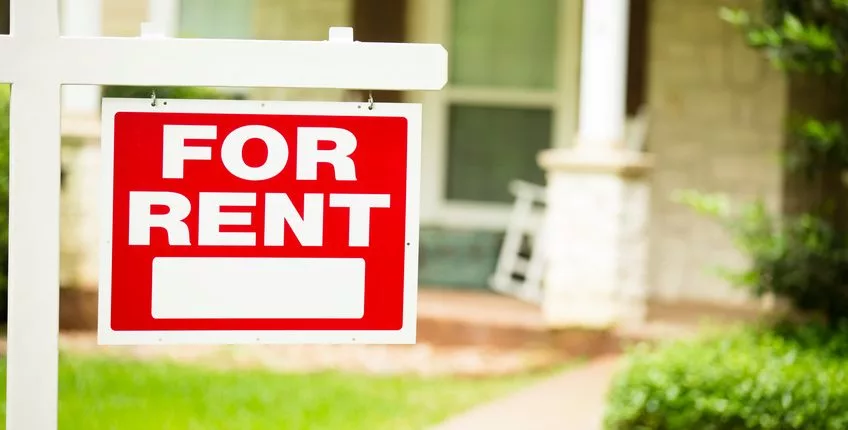5 Things Your Landlord Must Do in California
If you rent property in California, there are a few things your landlord must do in order to abide by the law. If you feel like your landlord is behaving inappropriately, you may be able to take legal action. Here are the five things your landlord must do in California.
Things Your Landlord Must Do in California
As a tenant in California, you have rights – and the landlords you rent from have certain responsibilities, too. Most of these are outlined in the California Tenant’s Guide. But while the guide is helpful, it can also be confusing and difficult to interpret, which can leave tenants struggling to find the truth.
We want to help.
This post will help you identify the five most common things your landlord must do in plain English – no legalese involved.
Here are 5 things your landlord must do.
1. Avoid Discrimination
This is one of those issues that sounds like it should be common sense at first glance. After all, isn’t discrimination illegal?
If you’ve thought this, you’d be correct – but there have been instances where landlords have subtly or openly discriminated against tenants, prospective or otherwise. This is obviously not okay.
A landlord may advertise their property for “seniors only,” or they may refuse to rent to someone with children or someone on government benefits. Or, they might look for fraudulent ways to evict someone after discovering they belong to a certain religion. All of these examples fall under the same laws – and they are all illegal.
Both California state law and the Fair Housing Act legislate discrimination within the landlord-tenant relationship. The FEHA prevents discrimination on the basis of any protected class specifically, while state laws protect against discrimination on the basis of personal traits, sexuality, gender identity, and even whether or not you receive income assistance.
If you believe a landlord discriminated against you, know that you have rights and several options for recourse. You may be able to file a complaint against them or even sue them if you can prove the discrimination happened.
2. Follow Legal Guidelines for Rent
Landlords must adhere to these guidelines at all times – they can’t simply “make up their own rules” or try to nickel and dime you into the ground. And they cannot evict you for being a day or two late, no matter how much they threaten you.
California has strict guidelines around rent. In most areas, this includes the definition of “late rent,” how much the landlord can charge you for late-payments and/or bounced checks, and when a landlord can evict you for failing to pay. It also includes adhering to rent controls (laws that dictate the maximum rent a landlord can charge).
Here are a few examples.
- If you bounce a check, your landlord can charge you – but they may only charge $25 the first time. They may charge up to $35 for each additional bounced check afterward.
- If you fail to pay the rent, the landlord must give you three days to pay it in full before initiating eviction. If they make other arrangements with you (for example, half now and half in two weeks), they must adhere to them.
- If you still fail to pay the rent, and/or your rent is more than three days past due, the landlord can evict you. However, they must give you a total of 30 days’ notice to quit – 60 days if your rent total has been raised by more than 10 percent in the last year.
- Landlords cannot increase your rent to punish you or out of retaliation for a complaint. For example, your landlord cannot increase your rent after you file a complaint about your apartment being filled with mold.
- In the case of rent controls, landlords may only raise your rent by a total of 5 percent each year. This is a new rule as of October 2019.
There may be other rent guidelines that apply to your situation, especially if you live in a mobile home or rent in a duplex or small unit building. A lawyer can best help you navigate this complex system.
3. Maintain a Habitable Unit
As a tenant, you have a responsibility to keep your rental unit clean, neat, and orderly. However, your landlord is responsible for keeping the unit habitable as according to the implied warranty of habitability.
What does this mean, exactly?
The landlord must complete any necessary maintenance tasks, repairs, and measures of upkeep in a regular and timely manner. This includes resolving any issues that might put your health at risk, such as a mold infestation or the spread of bed bugs from another unit in the building.
If a landlord fails in their duty of care, here, you have the right to repair and/or maintain the unit yourself out of pocket – and you can withhold the amount of rent you spend, too.
There is one catch: the repair has to be urgent and/or impactful, and you must have granted the landlord a reasonable amount of time to take action. For example, you probably can’t withhold rent to replace a worn-out piece of carpet. You can pay a plumber to repair a broken toilet if your landlord refuses to fix it and/or cannot be reached for some reason.
Unfortunately, issues of habitability often go much further than simple fixes. If you have been affected in a way that puts your health at risk, you also have the right to report and request an assessment from the Department of Health.
Further reading:
- How to Report a Landlord to the Health Department
- How to Report Your Landlord for Negligence
- Can You Sue Your Landlord for Black Mold?
4. Provide You With a Legal Lease
Landlords must provide you with an official and legal lease at all times – there are no exceptions to this rule. It does not matter if you are renting for six months, a year, or on a month-to-month basis; you must be provided with a lease that both of you sign.
Furthermore, the lease must contain specific information as outlined by state and federal laws. This includes the names of both parties, expected start and/or end dates for the tenancy, whether any rules apply, how much rent is being charged, when the rent is due, and whether or not the rent includes amenities, like storage or parking space.
Not sure if your landlord provided you with a legal lease? Have a look at this copy from the Apartment Owner’s Association (AOA). While the format may differ, your lease should contain all of the same basic information.
What if your landlord hasn’t provided you with any lease at all? This is an issue, too, as it leaves you with very little legal recourse if something goes wrong. A lawyer can help you decide whether it’s best to leave or try and push for one while protecting your rights along the way.
5. Respect Your Privacy
Landlords must respect your privacy at all times – they can’t simply walk into your rental space and/or enter your rented property as they please. And they can’t go through your things or take your belongings, even if you owe them rent or they believe you have something to hide.
Instead, all landlords must give you at least 24 hours notice – in writing – to tenants when they want to enter the unit. They do have the right to enter for inspections, reviews, repairs, maintenance, etc. as long as they follow this rule. If your landlord fails to follow the rules, you can refuse entry.
You can ask that your landlord reschedule a visit or entry for another time if you won’t be home. However, the law does not require them to agree as long as they gave an appropriate amount of notice in the first place; they can go in even if you aren’t there.
As for landlords who go through your belongings or attempt to seize your items as payment, they can be charged with theft or even breaking and entering. In fact, a landlord can even be held responsible if someone else steals your belongings because they neglected a security issue – such as failing to fix a faulty lock.
Further reading:
Conclusion
Now that you know the five things your landlord must do, you can make a more informed decision regarding whether or not you should pursue legal action. If you’re not, be sure to contact the SFVBA Attorney Referral Service to find a lawyer near you and schedule a free consultation for up to 30 minutes.
Are you in search for a certified attorney to represent you?
Let us help you find one today!



